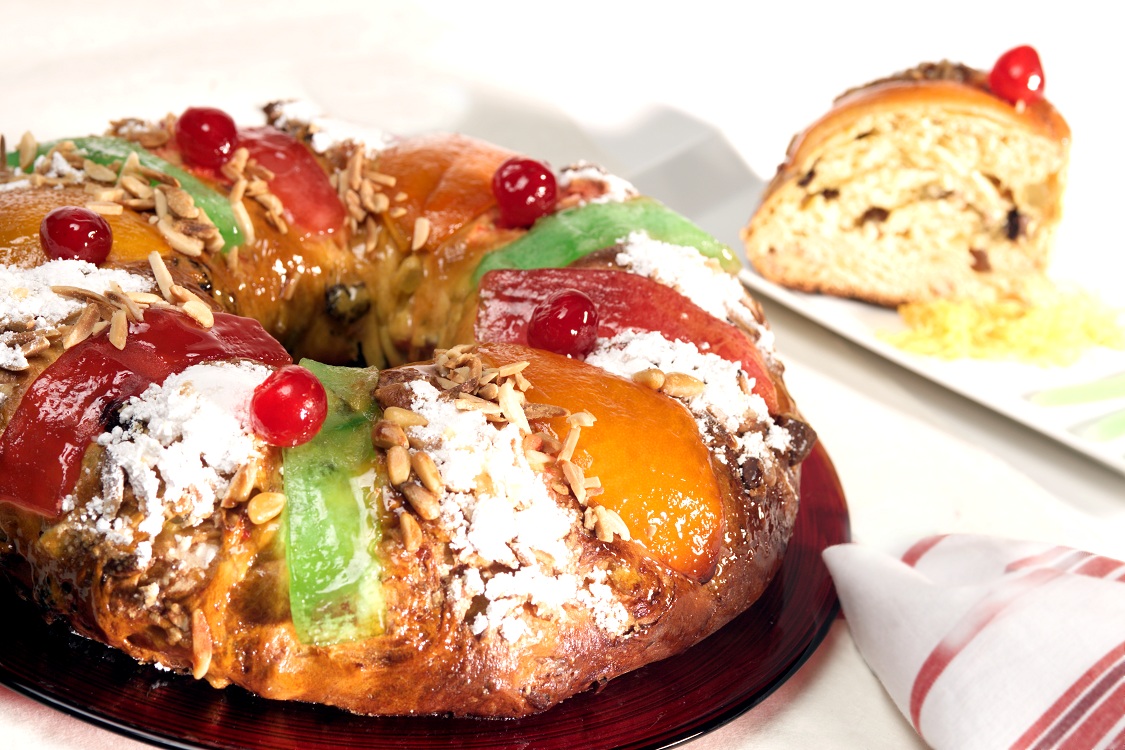Christmas celebrations
Although Christmas celebration is somehow universal, you do get the small and bigger differences per country or culture. Christmas in Portugal, is mainly a time to spend with family. Although Christmas trees have been more popular since the 70’s, the main decoration still is the “presépio”, the nativity scenes, that each home will have, and that towns will display in larger sizes and sometimes even with real people and animals playing out the roles. The Portuguese love to go and visit them. You will witness plenty of light decoration during December in the cities too, and although palm trees with Christmas lights might not give you the same feeling, it does get you into a winter atmosphere. Plenty of Christmas trees though during Christmas in Portugal!
Christmas Eve in Portugal
On Christmas Eve, families will come together and have their Christmas dinner, the “Consoada”, consisting of “bacalhau”, the famous codfish, with boiled potatoes, cabbage and eggs. After this modest meal, most will attend the Midnight Mass or Missa do Gallo, a catholic tradition. During the Christmas Mass, baby Jesus will be carried into the Crib, and everyone can kiss and worship it at the end.
Then, it’s time to head home again, to the great excitement of the children, who will see if baby Jesus appeared in their crib (often sneakily put there by a family member), who used to be the one that brought the Christmas gifts.

Christmas Sweets
Nowadays, more and more often, Santa Claus is replacing baby Jesus due to its commercialisation, also in Portugal. Many will open the presents right then, after the Christmas mass; some will keep it for Christmas day. But there will be a table waiting for all, filled with deliciously sweet treats typical for a Portuguese Christmas, most made out of fried dough and lots and lots of sugar. “Rabanadas” (similar to French toast), “filhoses”(made of pumpkin dough) and “azevias” (filled with a mixture of chick peas, sugar and orange peel) are some of the most popular Christmas sweets. Not to forget the Bolo de Rei, a typical Portuguese Christmas fruitcake.
The party goes on until late, meaning that Christmas day in Portugal is not so animated. Most will eat the “roupas velhas” (old clothes), the left-overs of the previous night with the family and relax, as everything is closed.
On the 26th, it’s back to business as usual. No second Christmas day or Boxing day in Portugal.
New Year traditions in Portugal
Between Christmas and the 6th of January, it’s time for the “Janeiras” (January songs). Groups of friends or neighbors go around houses singing traditional songs to sing in the New Year and wish everyone a happy new year. Once done with the singing, they are rewarded by chestnuts, nuts, apples, and the occasional glass of medronho in the Algarve.
New Year itself is celebrated with friends or family, with copious dinners, at home or in restaurants that offer package deals. Make sure you book quickly, as many will be sold out in the beginning of December.
New Year in the Algarve, traditions and festivities
At midnight, everyone goes into town to watch the central fireworks at the main square, sometimes followed by a concert. Albufeira, Portimão, Faro, Lagos and other bigger towns are good places to celebrate the New Year. The Portuguese will bring in the New Year by eating twelve raisins, making a wish for each month and drink champagne.
On the 6th of January, Christmas in Portugal is officially over, all decoration will be taken down.
This article about Christmas and New Year in Portugal and the Algarve, has been brought to you by Algarve Housing. Algarve Housing rent quality villas in the Algarve. Contact us for any further information about Christmas and New Year in the Algarve and if you looking for your private holiday paradise in the Algarve, stop looking! Contact me!
We wish you a wonderful Christmas and a very happy New Year!
Boas Festas
Michele




Great article, BUT our beautiful Silves is a CITY, not a town – celebrated its 500th anniversary as such a few years ago .
Best regards, Mary Bentley citizen of Silves